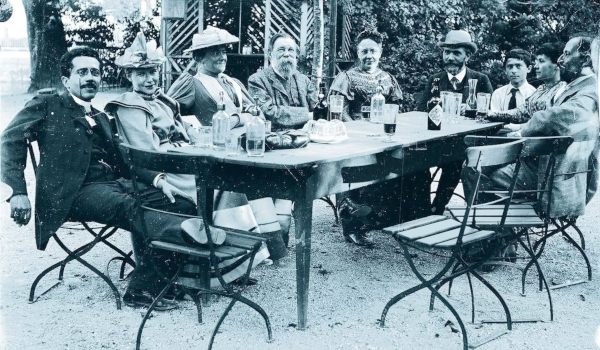Het is een mooie zomerdag in Zürich, ergens halverwege augustus 1893. De socialistische beweging is bijeengekomen voor een groot internationaal congres. Dat is in deze jaren niet evident, de socialistische beweging is nog jong. In België is enkele jaren daarvoor, in 1885, een nationale Belgische Werkliedenpartij (BWP) opgericht, en er is een stevige nationale delegatie van zeventien deelnemers naar Zwitserland getrokken, onder leiding van de nog jonge Emile Vandervelde.
Bij die deelnemers zitten deze keer ook enkele vrouwen. Onder meer Emilie Claeys uit Gent, een voormalige textielarbeidster die een degelijke opleiding heeft genoten en die eerder dat jaar werd aangeduid om deel uit te maken van de landelijke raad van de BWP. Zij is mee naar het verre Zürich gereisd, samen met haar uit Nederland afkomstige vriendin en medestrijdster Nellie van Kol.
Op het congres in Zürich maken de socialisten ruimte voor een eisenbundel rond vrouwenrechten. Er gaat een commissie aan het werk en er wordt een rapport opgesteld met acht eisen. De inspiratie komt vanuit de recente sociale maatregelen om kinderarbeid te beschermen. Ook voor vrouwen wordt nu geëist dat de overheid beschermende beperkingen oplegt: vrouwelijke arbeiders mogen maximum acht uur per dag werken, geen nachtwerk, geen jobs in gevaarlijke of vervuilende industrie, zwangerschapsverlof van zes weken, enzovoort.
Dat ziet er goed uit. De Duitse afgevaardigde Luise Kautsky brengt fier verslag uit en legt de eisenbundel aan het congres voor ter stemming. Iedereen akkoord? Plots gaat vanuit de Belgische delegatie een hand omhoog. Emilie Claeys heeft iets te zeggen.
Emilie Claeys is een fervente socialiste, maar een nog energiekere feministe. Voor haar staan de rechten van de vrouwelijke arbeidster centraal. Ze heeft zelf in fabrieken gewerkt en weet dus waarover ze spreekt. En dat botst. Claeys is zeer pragmatisch. Bescherming, allemaal goed en wel, maar dat betekent dat op de arbeidsmarkt vrouwenarbeid duurder wordt. En dan zullen fabriekseigenaren eerder mannen aanwerven, en zullen een aantal vrouwen hun werk verliezen.
Vooraleer er beperkende beschermingsmaatregelen worden opgelegd aan vrouwenarbeid, moet de overheid garanderen dat vrouwen hun concurrentiepositie op de arbeidsmarkt niet verliezen. Het is de pragmatische Claeys ten voeten uit: vrouwen moeten niet beschermd worden als weerloze kinderen, ze moeten de middelen krijgen om met gelijke wapens zelf voor hun rechten te kunnen vechten.
Er valt iets voor te zeggen. Het congres debatteert op beschaafde wijze over de argumenten, waarna ze met een algemene stemming fluks worden verworpen. Vrouwen hebben in de fabriek wel degelijk bescherming nodig, zo luidt het, want hoe gaan ze anders nog tijd hebben om thuis hun rol als moeder te spelen? Het radicale feminisme van Claeys is zijn tijd ver vooruit.
Zo gaat het ook in België, waar Claeys het feestje rond het behalen van het algemeen (meervoudig) stemrecht enigszins vergalt door te blijven herhalen dat het hier om algemeen mannelijk stemrecht gaat. Claeys overlijdt in 1943, pas in 1948 wordt in België het algemeen stemrecht voor vrouwen ingevoerd. Ze heeft het tijdens haar leven niet meer mogen meemaken.
Meer weten over Emilie Claeys? Lees gratis online deze bijdragen in Brood & Rozen:
- Guy Vanschoenbeek over de historische mythe van Emilie Claeys (1996)
- Julie Carlier over het feminisme van Emilie Claeys (2008)

Emilie Claeys, Gent ca. 1909 (foto Amsab-ISG)








